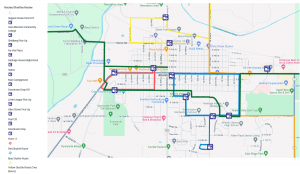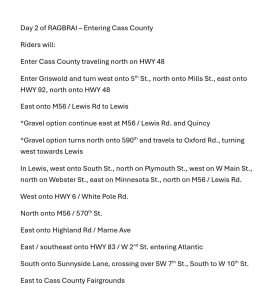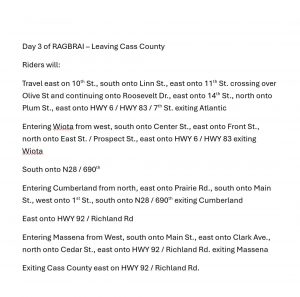(Des Moines, Iowa) – The state panel charged with ensuring transparency in government is being sued for allegedly violating Iowa’s Open Meetings Law. The Iowa Capital Dispatch reports Briana Reha of Polk County is suing the Iowa Public Information Board and its members for the manner in which they approved a pay raise for the board’s executive director, Erika Eckley.
The lawsuit alleges that on June 25, IPIB posted an agenda for its June 27 board meeting. Nine minutes into the meeting, Monica McHugh, the board chairman, proposed an increase to Eckley’s salary as a topic for board deliberation and action. After briefly discussing the matter, the board approved a 6% salary increase for Eckley by unanimous vote, bringing her total annual salary to $103,307.60.
The video of the board meeting indicates the board was informed that anything above 6% would exceed the allowable salary range for the position. Eckley was appointed to the job in March 2023. The lawsuit alleges the board did not include on its agenda a salary increase as a topic of board discussion or as an action item for the board. The agenda and the related board materials contained no reference to a possible salary increase, and only indicated that the board chairman would make comments pertaining to “Eckley’s evaluation.”
That notice “did not sufficiently apprise the public and give full opportunity for public knowledge and participation on the issue of the proposed salary increase,” the lawsuit claims. The lawsuit seeks a court finding that IPIB violated the state’s Open Meetings Law and asks that the court void the salary increase and issue an injunction ordering the board to refrain from any future violations. 
The Iowa Public Information Board is a nine-member panel appointed by the governor and confirmed by the Senate for the stated purpose of fielding complaints about local and state boards, commissions and councils’ compliance with Iowa’s Open Meetings Law and Open Records Law.
In 2018, Iowa’s Office of Ombudsman issued a report on IPIB called “No Model for Transparency.” The report was critical of the manner in which IPIB handled complaints and of the manner in which IPIB responded to the ombudsman’s inquiries on two issues. As part the ombudsman’s investigation into that matter, the office had asked for, and eventually subpoenaed, tapes of IPIB’s relevant closed-door meetings. IPIB refused to turn over the tapes, and the ombudsman’s office opted not to pursue the issue in court.













